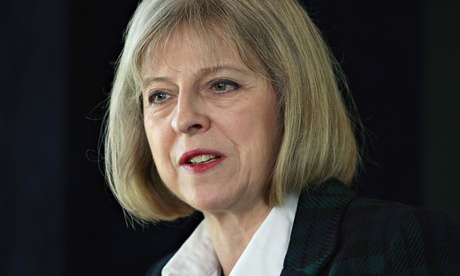
A poster campaign aimed at mothers and carers who suspect a girl is at risk of female genital mutilation is being rolled out across cities in England and Wales.
The posters urge women, particularly those in Somali, Kenyan and Nigerian communities which have a higher prevalence of FGM, to call an NSPCC-dedicated helpline if they are suspicious. The posters will be placed in public toilets, and also sent to schools, GPs' surgeries, police stations and hospitals to be displayed in staff areas.
More than 20,000 girls under the age of 15 could be at high risk of FGM in England and Wales each year, with nearly 66,000 women having experienced the procedure.
Announcing the poster campaign, the home secretary, Theresa May, said: "FGM is illegal and it is child abuse. The government is absolutely committed to tackling and preventing this harmful practice in order to safeguard and protect all girl and women who may be at a risk. It often results in severe consequences for their physical and mental health and we must do everything we can to eradicate it for good.
"This campaign builds on an intense effort under way across government. We understand better than ever before the prevalence and distribution of what is often a hidden crime and we are determined to see perpetrators brought to account in court."
The posters will be placed in washrooms across 17 London boroughs, in Birmingham, Manchester, Leicester, Bristol, Sheffield, Liverpool and Cardiff. They will direct mothers and carers to telephone the free 24-hour NSPCC FGM helpline (0800 028 3550) to report suspicions anonymously, or ask for help and advice if their own daughter is at risk.
Norman Baker, the crime Prevention minister, said: "Mothers have the power to stop this happening to their daughters and the next generation. Political or cultural sensitivities must not get in the way of preventing and uncovering this terrible form of abuse. The law in this country applies to absolutely everyone."
The campaign will run until August to reach communities during the school holidays when most girls are at risk.
The NSPCC has been contacted by more than 200 people since it launched its helpline last year but believes this is the "tip of the iceberg" with thousands vulnerable.
In addition to the posters, online ads aimed at mothers will run on Facebook and Netmums, which will direct them to the NSPCC website for support and advice.

